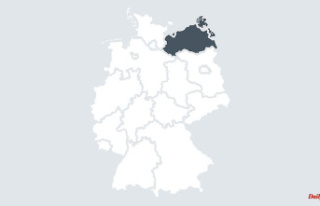Even before he sets foot on the plane, Chancellor Scholz emphasizes that "business as usual" with China is no longer possible. The trip to the People's Republic is accompanied by a lot of suspicion - on both sides. At the opening meeting with Xi, the term "confidence-building" was also used.
Chancellor Olaf Scholz wants to talk to Chinese President Xi Jinping about further developing economic relations, but does not want to avoid differences. At the start of his talks with the head of state and party in Beijing, the SPD politician said that "of course" there would also be questions "where we pursue different perspectives". That is "the goal of a good exchange".
In his opening statement, the Chancellor emphasized the war in Ukraine. "We come together at a time of great tension. I want to particularly highlight the Russian war against Ukraine, which poses many problems for our rules-based world order." He also named hunger, climate change and the indebtedness of poor countries as important issues.
China's President Xi said at the meeting that the chancellor's visit will "deepen practical cooperation," Chinese state media reported. The visit will contribute to "confidence-building" and the further development of German-Chinese relations "in the next phase".
However, Germany's relationship with China is currently characterized by considerable differences. The German government is concerned about Chinese support for Russia despite the Ukraine war, Beijing's threats to use military force against Taiwan, the human rights situation and market and trade barriers for Western companies.
Scholz had already announced a readjustment of German China policy before leaving. "Business as usual" is not possible because the politics of the People's Republic have changed in recent years and have become more confrontational. At the meeting with Xi in Beijing's Great Hall of the People, Scholz emphasized the importance of personal exchanges with the Chinese leadership. It is "good that we will have a very intensive exchange on all questions," he said.
The Chancellor's visit is special in several respects. It takes place under the strict corona restrictions in force in China. After landing in Beijing, the chancellor had to undergo a PCR test under the supervision of the Chinese health authorities - according to the German government, it was negative. For pandemic protection reasons, an overnight stay in China was avoided.
In addition, Scholz is the first western state guest to be received in the isolated country since the beginning of the pandemic more than two years ago. He is also the first head of government from the West to meet Chinese President Xi since he consolidated his autocracy at the Chinese Communist Party congress two weeks ago.
Criticism from many sides accompanies the Chancellor on his journey. The coalition partners Greens and FDP demand a clear commitment to human rights. This demand also comes from human rights groups and dissidents who accuse the People's Republic of the most serious crimes, for example in the province of Xinjiang, which is inhabited by Muslim Uyghurs.
The timing of the trip was also criticized so shortly after the party conference at which the Communist Party once again emphatically reaffirmed its claim to power in the People's Republic, flanked by massive state repression.
At the same time, China, as Germany's most important trading partner, has an important economic position. The Chancellor will be accompanied by a business delegation, including the heads of VW, BMW, BASF, Adidas, Biontech and Deutsche Bank. The German economy wants to continue its lucrative business with the People's Republic - at the same time there are growing concerns that Germany will become too dependent on China.
In view of these areas of tension, the visit to Beijing is also seen as a diplomatic test for the chancellor. Specifically, Berlin hopes that China will have a moderating effect on its partner Russia and its conduct of the war in Ukraine - especially in view of the recent nuclear rhetoric from Moscow.












